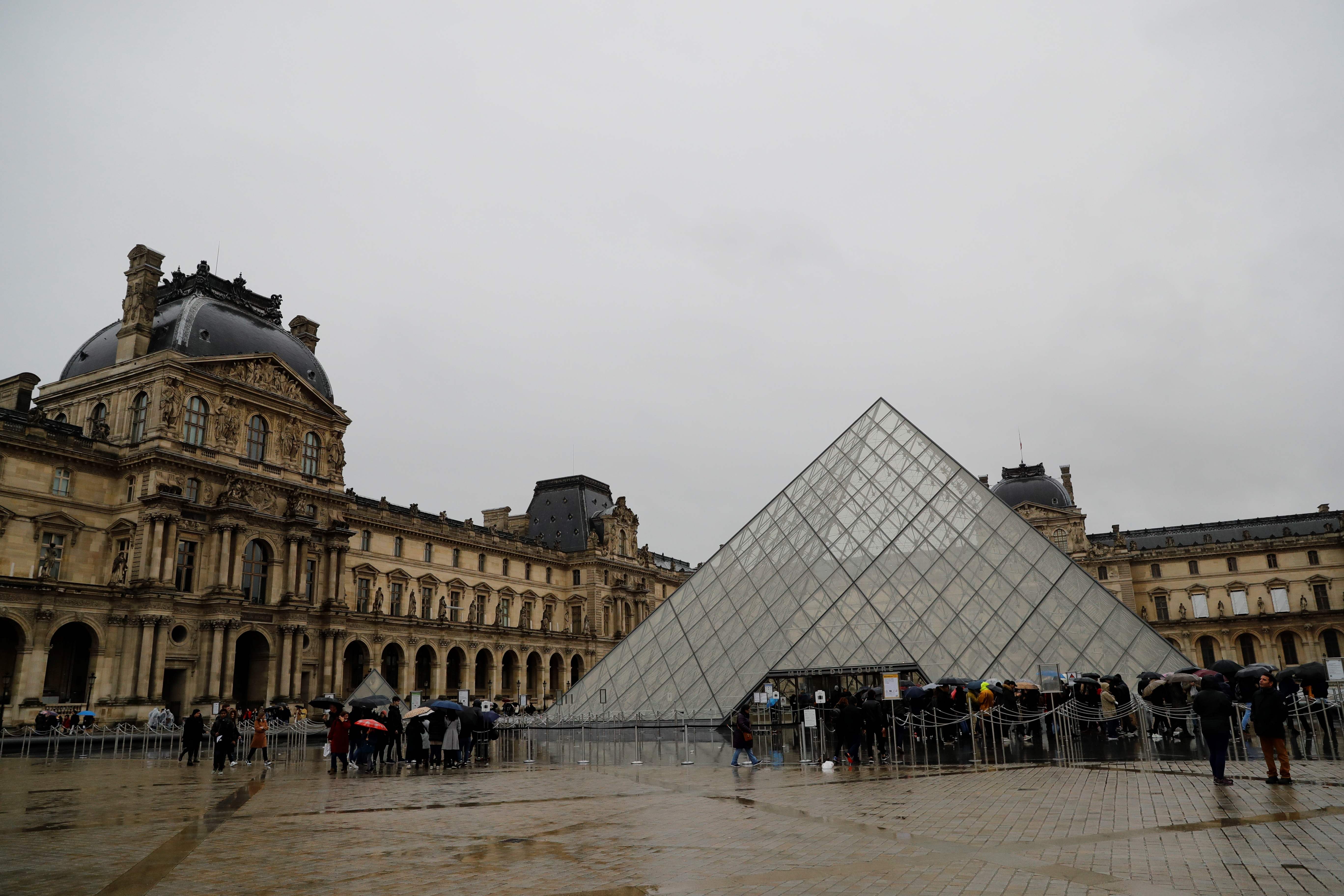They found the door closed: for two days, tourists must give up visiting the Louvre museum. The site is indeed closed due to the right of withdrawal claimed by employees, who fear the spread of the coronavirus.
Read also: Coronavirus: the Louvre museum remains closed this Monday
But what is the right of withdrawal, and in what context can employees exercise it? Le Figaro takes stock.
What is the right of withdrawal?
The right of withdrawal is enshrined in article L4131-1 of the Labor Code. Concretely, it guarantees that the worker "can withdraw from a situation" in which he has "a reasonable reason to believe that it presents a serious and imminent danger to his life or his health" .
It is an individual right, but it can also be exercised collectively - this is what the Louvre employees have chosen to do by organizing a vote, Sunday and Monday morning.
The right of withdrawal can only be invoked if the employee or civil servant has made use of his right of alert: that is to say, if he has pointed out the risks he incurs while remaining at his post. Unlike the right to strike, the right of withdrawal does not require the worker to give notice, and nothing can force him to return to his job as long as he considers that a danger exists.
Faced with coronavirus, to what extent can this right be invoked?
Duration of contact, feeling of threat: " the law only requires having 'reasonable grounds to believe' that the work situation presents a serious and imminent danger, adds Valérie Duez-Ruff, lawyer at the Paris bar and former member of the Council of the Order of Paris. It does not require a real cause of danger, appearance and good faith are enough. ” In short, it is less the danger itself than the workers' feeling of danger that will weigh in the judge's assessment.
The employees of the Louvre have a specific reason for concern: the museum receives around 10 million visitors a year, coming from all over the world. Many employees are in contact with these visitors, but they are not equal: " someone who manages the cash register of the museum shop is much more exposed to the virus than an accountant who does not leave his office ", illustrates Eric Rocheblave, lawyer specializing in labor law.
The legitimacy of the right of withdrawal is thus decided on a case by case basis, by the judge. It is at the positions most exposed to the public that the right of withdrawal is most justified. Note also that it is only in the work situation that the risk is under-weighed. An employee who would work in an office but would have to take public transportation and be confronted with the crowd to get to his position cannot invoke his right of withdrawal. On the other hand, we can think that this same employee could legitimately invoke his right of withdrawal if " one of his colleagues returns from a risk zone or has been contaminated ", underlines Valérie Duez-Ruff. However, the employer still should not have implemented measures that limit contamination, " since only close and prolonged contact with people with symptoms could contaminate them ".
What can the employer do?
The employer cannot compel his employees to return to work, unless he has implemented measures to ensure their safety. In the case of the coronavirus, it can for example " increase the quantity of hydroalcoholic gel and put on windows separating the cashiers from the public in order to protect its employees ", notes Valérie Duez-Ruff,.
Faced with the right of withdrawal of some of its employees, the Louvre museum thus specifies that it has mobilized preventive doctors: " they are always on hand to answer questions from agents and to receive those who wish to consult them ".
Can one be punished for having invoked his right of withdrawal?
Unlike the right to strike, the right to withdraw does not imply deduction of wages or sanctions. Nor does it require the worker to file a notice, and nothing can force him to return to his job as long as he considers that a danger exists.
But if after an application for interim measures from the employer to the industrial tribunal, the judge considers that the employee did not have to invoke his right of withdrawal, he risks a deduction from wages, but also a penalty : a warning, a reprimand, even a dismissal. Conversely, if the judge validates the right of withdrawal, the company takes the risk of being condemned for not having ensured the safety of its employees.
Read also: Coronavirus puts "global economy at risk," warns OECD
While France has passed to stage 2 of the epidemic, the government has for the moment prohibited only the gatherings of more than 5000 people in a closed environment, which mainly concerns cultural events, but not museums like the Louvre . A meeting of cultural establishments is planned for this Monday afternoon at the Ministry of Culture to determine the procedure to be followed in these establishments which receive a large audience.













/cloudfront-eu-central-1.images.arcpublishing.com/prisa/S7ERVSCT4FUVX6R7TUVBDNTH5Y.jpg)
